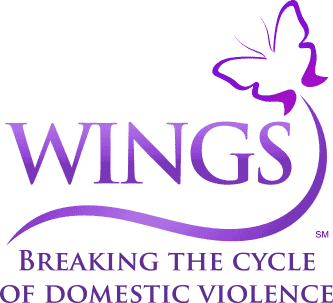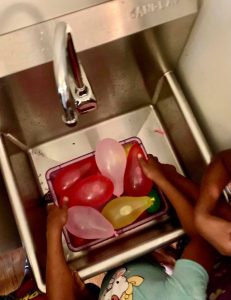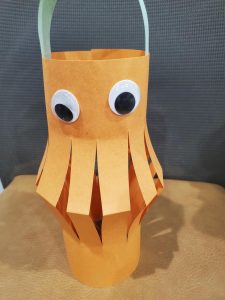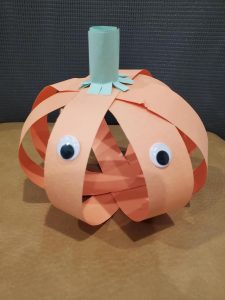A Day in the Life of a Children’s Advocate Intern
- Posted by Sarah Swiston
- On November 18, 2021
- chicago metropolitan area, Chicago suburbs, children services, children survivors dv, Domestic Violence, domestic violence agency, domestic violence organization, DV agency, dv survivors, End Domestic Violence, family services, Housing Programs, non-profit, northwest chicago, WINGS, WINGS Program
Hello
Hello! My name is Julianne* and I’ve been a WINGS Children’s Advocate Intern since May. I’m working in a Master’s Degree program and set to graduate in the Spring of 2022.Read more below about what a day in the life of a Children’s Advocate Intern is like.
When I think about what led me to this career, I’ve known my whole life that I wanted to help people. I can trace this sentiment back to when I was a child.
My mother, two sisters and I were in the WINGS Transitional Housing Program.
WINGS counseling services changed my life. I remember being so lost and angry, but when I met with my social worker, I was able to play with my toys and talk about what I had been through and how I was feeling in the moment. This made all the difference in the world to me because I felt seen, heard and understood by my social worker.
My senior year of college I took an individuals and families class in social work and fell in love with the profession. I realized that I had the ability to be someone similar to my WINGS social worker. This is when I knew how I could help give back to society.
When I needed to complete an internship for my Master’s program, I found out that WINGS was an option and applied.
Summer Camp
When I began my internship, my first responsibilities were to be a Children’s Summer Camp Intern at the Suburban Safe House. I created and coordinated engaging activities for youth four years old to 13. Together with another intern we planned the entire summer camp.
The Summer Camp ran Monday, Wednesday and Friday from 1:00pm-4:00pm.
We would always start with an exercise video, then have an activity, usually a craft or a game.
Next, we would have a snack and free-play with playdoh, dolls or other outdoor activities.
My favorite memory is the water day I planned. Everyone had a great time playing with water balloons and sponges.
Daily Routine
Once the Summer Camp ended, my routine changed. My day starts by checking in, greeting staff and working on administrative tasks like checking email, completing paperwork, tracking my hours, etc.
Often after that, I have a therapy session with a child-client.
Expression through Art: With the younger clients, I like to incorporate art projects. One example of an activity is asking the child to “draw a person picking an apple from an apple tree.” This exercise can show their problem-solving skills, or the child may draw something else entirely.
Coping Skills: Another goal of these sessions is to educate youth on different ways to regulate their emotions.
- Sometimes we’ll read books, like The Color Monster, which help them identify their emotions and feel more in control.
 Sometimes we’ll create a craft. One example is creating a paper fortune teller with different coping techniques listed inside.
Sometimes we’ll create a craft. One example is creating a paper fortune teller with different coping techniques listed inside.
My favorite thing I get to do each day is interacting with survivors, even in passing. I enjoy getting to know them and their families. Four or five youth at the Suburban Safe House; right now, are really attached to me. They ask me to eat dinner with them, sit and talk to them and it is very endearing to me to be that person they want to connect with.
Homework Club
Some days I assist with the Homework Club at the Suburban Safe House from 4:15pm – 5:15pm. It never fails that youth will ask me to assist them with math, and that is not my area of expertise!
Parenting Group
For six weeks I ran the Parenting Group and it became “my baby.” The format is virtual, so I prepared presentations. Some were pre-made and some I created on my own. I spent about two hours each week tweaking the presentations and adding discussion questions so the parents could share examples and experiences.
Some sample topics include: no drama discipline, how to engage your child and coping skills. These groups are attended by both Safe Houses and Transitional Housing clients.
Typically, I start the groups with an icebreaker. Sometimes they are silly, other times they are about sharing “what three good things happened to you this week,” or one I enjoyed, “What is your personal weather forecast?”
I asked parents what they wanted to learn and discuss because it was really their time. I acknowledged each person when they shared and made sure I validated their comments. Some sessions parents shared more and other sessions there was a lot of listening. The virtual format worked well to reduce attendance barriers.
Children’s Groups
These groups are usually broken down by age.
The younger children, five and under, will do a therapeutic activity like play with colored playdoh or other activities to assist with their motor skills and executive functioning.
The older children may do a collage. One example of a prompt is “what does your dream bedroom look like?” Another is on a big sheet of butcher paper, youth draw or write a color that describes them, including positive attributes that makes them who they are.
What You Wish People Knew about Your Work
For me, I have literally come full-circle. I wish people knew that people have invisible bruises and these are the dark, real-life examples of domestic violence. They contribute to why women stay in abusive relationships, it is not just as easy as walking out of a door. You have to plan, you are literally trapped, whether there is a gun to your head or not. A survivor will attempt to leave an average of seven times before the survivor can leave for good.
Domestic violence is so prevalent. It can be under your nose and you could have no idea. It is an epidemic that has gotten worse during the pandemic. People who have never been abusers before have started during the pandemic.
Through this darkness, I find hope in working with children. Children are the future. They can break the cycle of violence. I was a very violent kid: throwing things, lashing out, even burning things with a glue gun. I couldn’t regulate myself. It is interesting to me how people who have been abused will become abusers even though they know how it made them feel.
As I finish my internship, I feel like I am in the best place emotionally, professionally and academically, that I have ever been in my life. I have come to a place where I am at peace with my experiences, negative and positive, and I look forward to my future as a social worker.
Interested in Learning More
Your support can empower WINGS to break the cycle of violence for more youth. Learn more:
*WINGS uses representative names and photos to protect the dignity and security of those we serve.




0 Comments